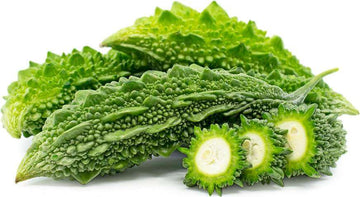Bitter melon, known by various names like bitter gourd, bitter squash, or karela, is a product of a vine thriving in hot, humid climates. Although predominantly used in Asian countries, Africa, and the Caribbean, it's gaining traction in the U.S. as a versatile food, beverage, and supplement, particularly grown in regions like Florida.
The fruit, considered a vegetable in culinary contexts, falls into two primary categories: the Chinese variety, resembling a green, oblong cucumber with wrinkled skin, and the Indian type, shorter with spikier bumps and green skin. Known for its intense bitter taste, bitter melon can mellow to a pungent flavor through various cooking methods. It's crucial to consume it while green; as it ripens, it becomes excessively bitter.
From a nutritional standpoint, bitter melon is low in calories and carbs, containing a fair amount of fiber, making it unlikely to cause spikes in blood sugar levels. With 24 calories per cup of cooked bitter melon, it includes 1g protein, 5g carbohydrates, 2.5g fiber, and significant levels of carotenoid antioxidants, vitamin C, folate, and potassium.
Bitter melon's role in traditional medicine, especially in managing diabetes, is well-documented across Asia, Africa, and the Caribbean. Several studies suggest its potential in lowering blood sugar and improving metabolic risk factors, though most studies utilized bitter melon extracts rather than the whole fruit.
For instance, a 2023 study observed a reduction in post-OGTT blood sugar levels and lower glucagon levels in people with prediabetes taking bitter melon extract. Other trials demonstrated varying effects on blood glucose levels and HbA1C in individuals with Type 2 diabetes, along with reductions in waist circumference and metabolic syndrome incidence.
The fruit's compounds like polypeptide-p, charantin, and vicine are believed to contribute to its blood glucose-lowering effects by mimicking insulin, reducing intestinal glucose absorption, and influencing fat metabolism genes. Furthermore, bitter melon exhibits anti-inflammatory and antioxidant properties, countering insulin resistance.
Despite most studies utilizing extracts, the consumption of bitter melon fruit aligns with good health, evident in populations like the long-living individuals of Okinawa, Japan.
Finding bitter melon in mainstream U.S. grocery stores remains a challenge, but it's available in Asian markets, online retailers, and southern farmer's markets. Opt for underripe, green bitter melons and store them in the refrigerator for up to a week.
Cooking bitter melon involves various methods to reduce bitterness, such as salting, parboiling, or incorporating it into stir-fries and curries, complementing its taste with salty, sweet, and umami flavors.
Recipes like bitter melon stir-fries, Indian bitter melon curry, bitter melon smoothies, and bitter melon tea offer diverse ways to incorporate this ingredient into your diet.
Bitter melon supplements, available in capsule form, may aid in managing blood sugar levels. However, caution is necessary, especially for pregnant or breastfeeding individuals and those taking blood glucose-lowering medications, as these supplements might amplify the effects.
Consulting healthcare providers before using bitter melon supplements ensures appropriate dosage and consideration of potential side effects like dizziness, low blood sugar, or gastrointestinal issues.
In conclusion, bitter melon stands as not just a culinary curiosity but a potential ally in managing health conditions like diabetes, offering a bitter taste balanced by its array of potential benefits.
α-MTPC for WellnessBay





